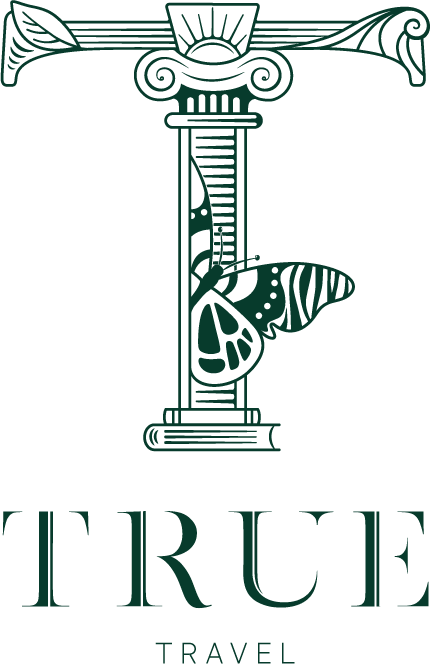

True Travel

London Borough of Hammersmith and Fulham, United Kingdom
August 2023
Travel agency & related
Service with Minor Environmental Footprint
Antigua and Barbuda,
Argentina,
Austria,
Barbados,
Bhutan,
Botswana,
Cambodia,
Chile,
Colombia,
Costa Rica,
Croatia (Hrvatska),
Czech Republic,
Ecuador,
Egypt,
Finland,
France,
Germany,
Greece,
Iceland,
India,
Indonesia,
Ireland,
Italy,
Japan,
Jordan,
Kenya,
Maldives,
Mauritania,
Mexico,
Morocco,
Mozambique,
Namibia,
Netherlands The,
New Zealand,
Norway,
Oman,
Peru,
Portugal,
Rwanda,
Seychelles,
Singapore,
South Africa,
Spain,
Sri Lanka,
Switzerland,
Tanzania,
Thailand,
Turkey,
Uganda,
United Arab Emirates,
United Kingdom,
Vietnam,
Zambia,
Zimbabwe
True Travel are a team of passionate, global travellers with deep expertise of our specialist destinations. We firmly believe that no two people are the same, and neither should our travel experiences be. Sharing our unique perspective, experience and craft; we pride ourselves on curating itineraries that are truly inspired by you. Our mission is to enrich lives and create lifelong memories through authentic, tailor- made travels. Taking you away from the crowds and into truly wild places. As we look to the future of travel, we want to find solutions; not simply to help our clients offset their carbon emissions from their travels, but to go further and ensure they can have a carbon negative and climate positive impact. Each year, we will continue our commitment to donate to the projects that we have chosen to support, all of which the team at True Travel are particularly connected to and passionate about. We want our impact to be lasting and profound. Hand-crafted, individually designed travel is a dying art. We’re here to preserve it.
Overall B Impact Score
Governance 18.3
Governance evaluates a company's overall mission, engagement around its social/environmental impact, ethics, and transparency. This section also evaluates the ability of a company to protect their mission and formally consider stakeholders in decision making through their corporate structure (e.g. benefit corporation) or corporate governing documents.
What is this? A company with an Impact Business Model is intentionally designed to create a specific positive outcome for one of its stakeholders - such as workers, community, environment, or customers.
Workers 34.3
Workers evaluates a company’s contributions to its employees’ financial security, health & safety, wellness, career development, and engagement & satisfaction. In addition, this section recognizes business models designed to benefit workers, such as companies that are at least 40% owned by non-executive employees and those that have workforce development programs to support individuals with barriers to employment.
Community 16.7
Community evaluates a company’s engagement with and impact on the communities in which it operates, hires from, and sources from. Topics include diversity, equity & inclusion, economic impact, civic engagement, charitable giving, and supply chain management. In addition, this section recognizes business models that are designed to address specific community-oriented problems, such as poverty alleviation through fair trade sourcing or distribution via microenterprises, producer cooperative models, locally focused economic development, and formal charitable giving commitments.
Environment 10.7
Environment evaluates a company’s overall environmental management practices as well as its impact on the air, climate, water, land, and biodiversity. This includes the direct impact of a company’s operations and, when applicable its supply chain and distribution channels. This section also recognizes companies with environmentally innovative production processes and those that sell products or services that have a positive environmental impact. Some examples might include products and services that create renewable energy, reduce consumption or waste, conserve land or wildlife, provide less toxic alternatives to the market, or educate people about environmental problems.
Customers 3.5
Customers evaluates a company’s stewardship of its customers through the quality of its products and services, ethical marketing, data privacy and security, and feedback channels. In addition, this section recognizes products or services that are designed to address a particular social problem for or through its customers, such as health or educational products, arts & media products, serving underserved customers/clients, and services that improve the social impact of other businesses or organizations.